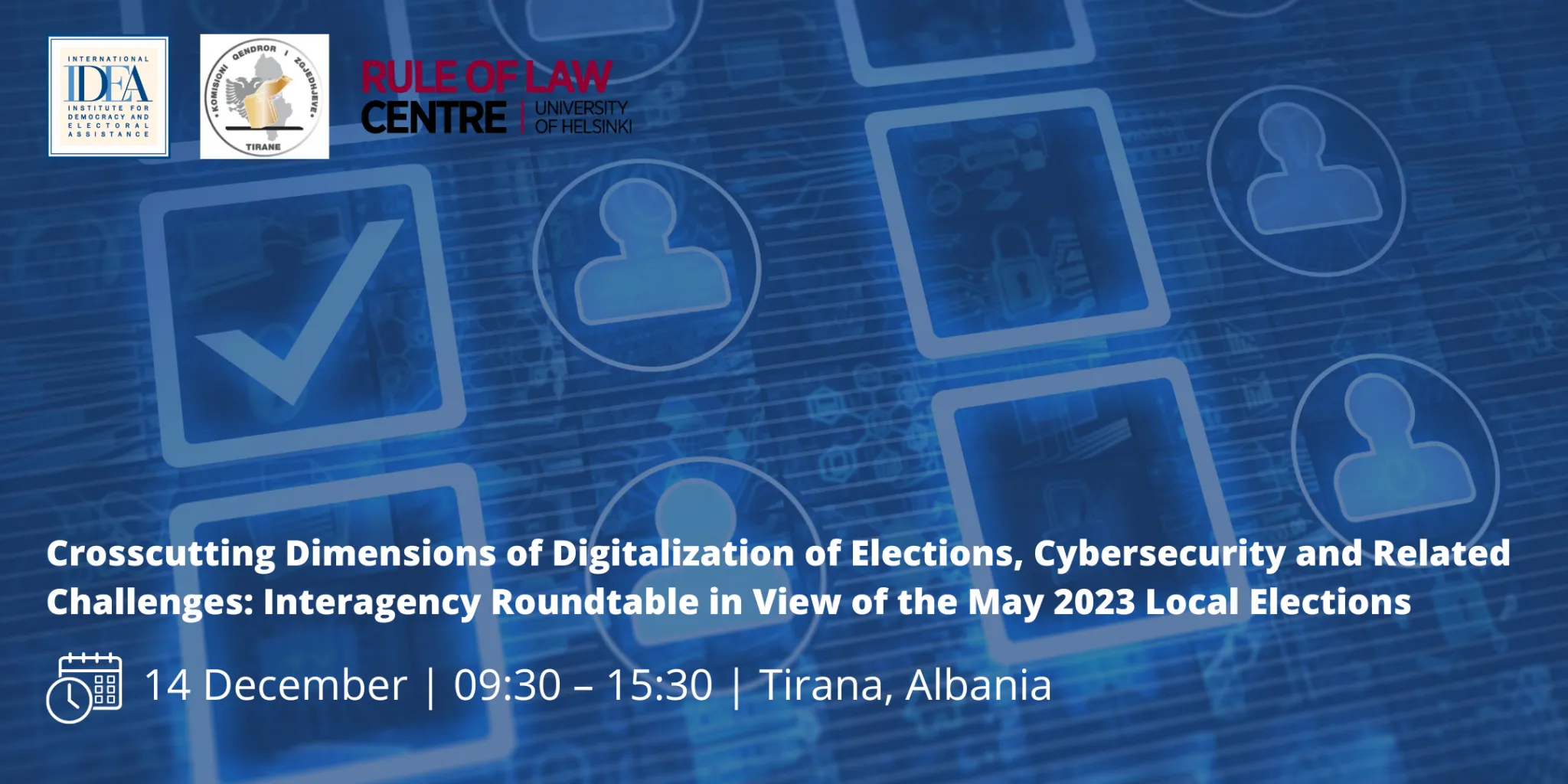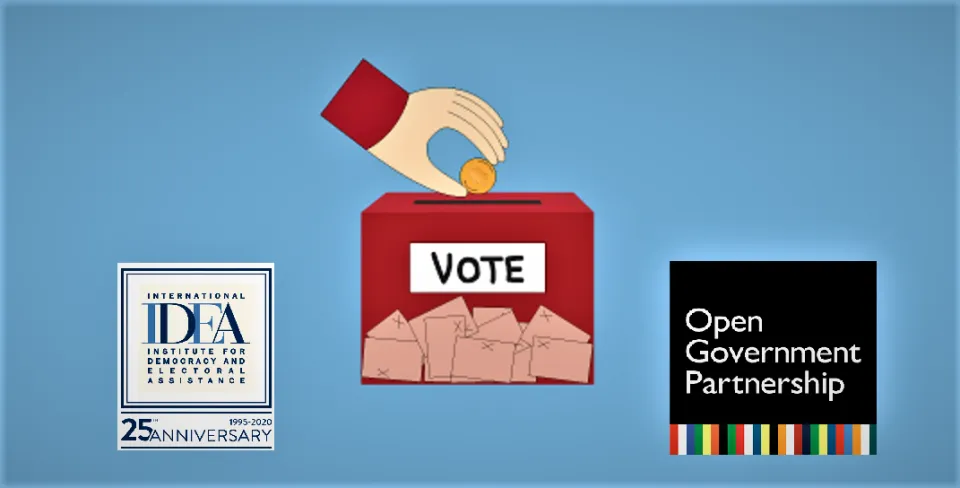Crosscutting Dimensions of Digitalization of Elections, Cybersecurity and Related Challenges: Interagency Roundtable in View of the May 2023 Local Elections

This event will be in Albanian and English (simultaneous translation) at the Tirana International Hotel
The Central Elections Commission (CEC), in cooperation with the International Institute for Democracy and Electoral Assistance (International IDEA) and the Rule of Law Centre of Finland, will host on 14 December an interagency roundtable on crosscutting dimensions of digitalization of elections.
As in many other democracies, digitalization is increasingly prevalent in electoral management and democratic processes in Albania. This irreversible trend brings enormous opportunities, but also increased exposure to threats that require mitigation strategies and a higher degree of preparedness.
Cybersecurity remains currently one of the greatest electoral challenges, even for consolidated democracies that do not implement any form of electronic voting. Vulnerabilities vary from country to country, but may typically result in: cyberattacks against election-related infrastructure aimed at breaching the confidentiality, integrity and availability of election technology and data; disinformation campaigns that attempt to undermine the credibility of the electoral administration and democratic institutions; cyberattacks against electoral stakeholders, political parties, candidates, media and campaigns; and disinformation campaigns designed to shape the political debate.
With the emergence of digital threats to elections in countries such as Estonia, Georgia, Ukraine, and in particular in the US in recent years, many countries have stepped up interagency collaboration at the domestic and international levels. Models of cooperation vary greatly in terms of organization and range of actors involved, but typically see electoral management bodies lead coordination efforts with cybersecurity expert bodies and security agencies. Since 2019, the European Union (EU) has created the European Cooperation Network on Elections, which brings together relevant authorities from the Member States to exchange knowledge on these matters.
Electoral processes in Albania have not faced major cybersecurity threats to date and digitalization has proven a successful tool to inject trust in the public. The increased exposure that comes with the increased use of technology in the campaigns and election management however, along with the recent cybersecurity incidents that targeted key government agencies, call for higher attention and preparedness.
In its capacity of independent body entrusted to manage elections in Albania, the Central Elections Commission (CEC), plans to prioritize the mitigation of digital threats ahead of the May 2023 local government elections. Notably, it seeks to increase coordination, communication, information sharing and stocktaking/lessons learnt with relevant agencies on matters of safe use of technology and in the protection of elections and democratic processes from digitally-enabled threats. This initiative builds on the consolidated cooperation at the bilateral level, such as with the Civil Registry Directorate and the Commissioner for the Right to Information and Personal Data Protection, as well as interinstitutional cooperation on specific topics, such as the Task Force on the Out of Country Voting.
The objective of the interagency roundtable of 14 December 2022 is to bring together a broad group of Albanian agencies with mandates in the digitalization sphere, to explore the potential for deepening collaboration ahead of the 2023 elections.
Key aspects of discussion:
- The importance of preparedness, prevention and timely establishment of coordination mechanisms
- Best practices of interagency coordination in EU countries, focus on the Finnish experience
- Stocktaking from the 2022 cybersecurity attacks, information sharing and interagency mutual support to ensure integrity and trust in the electoral process
- Considerations on digital threats in election management (use of voting technology, out of country voting and daily management involving ICT)
- Broader digital threats to electoral processes: online campaigning, disinformation, undermining of trust in democratic institutions, and potential foreign influence
- Formal vs spontaneous interagency cooperation: Reflections on the legal framework and potential needs for improvement
- Cybersecurity and personal data protection: the importance of capacity building to election administration and voter education
- The importance of public communication and projecting trust in the electoral process
- Interagency coordination at national and regional level as a step closer towards EU membership
This event is organized in the framework of the project 'Integrity and Trust in Elections in Albania: Fostering Political Finance Transparency and the Safe Use of Information and Communication Technologies,' co-implemented with the Rule of Law Centre of Finland.
For more information contact:
- Peter Wolf, Senior Expert, Electoral Processes: P.Wolf@idea.int
- Elvana Kurti, Project Coordinator, Regional Europe Programme: E.Kurti@idea.int


